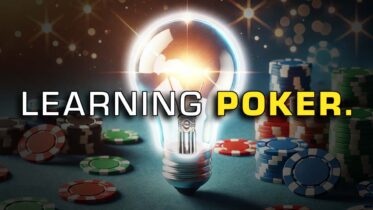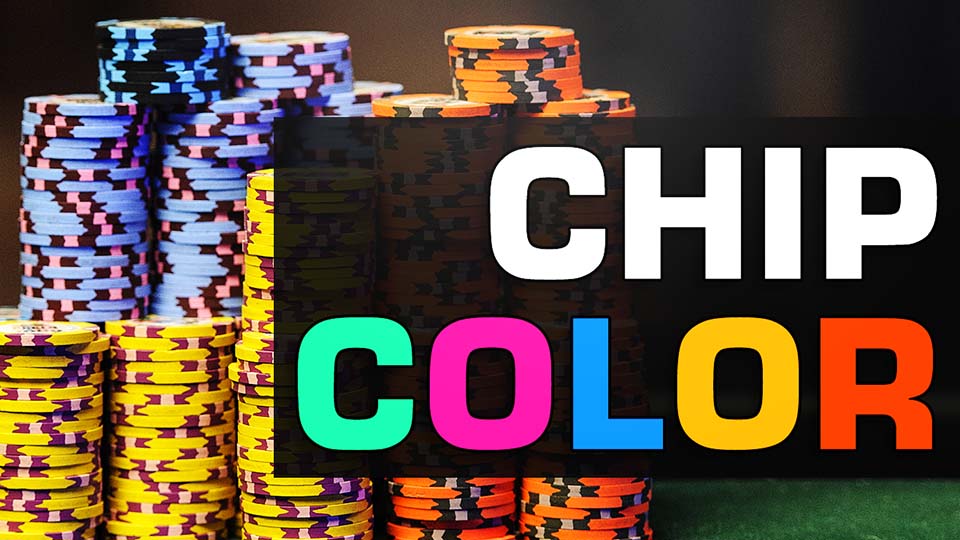Poker is a game that takes a day to learn but a lifetime to master. This adage about poker could hardly be truer, as poker truly is a simple game at first sight but a very complex one in its depths.
Back in the day, after you understood basic poker rules, the only way to learn poker was to read a few books like “Super System” and talk to people about hands on forums like Two Plus Two.
This has changed over the years, as new learning methods for poker have been introduced, making it difficult to know where to look for the best options.
If you are thinking about learning poker in 2026, you should take a systematic approach that’s made up of a few different phases.
I will take you through these phases and teach you to learn poker in 2026 effectively and quickly, helping you become a solid player in a reasonable timeframe.
Starting with the Basics
Before you can even discuss any poker strategy or even the mathematics of poker, you need to learn how the game works on the most basic level.
I am talking about poker hand rankings, game flow, and other basic elements of the game that you have to know by heart to get into any of the nitty-gritty.
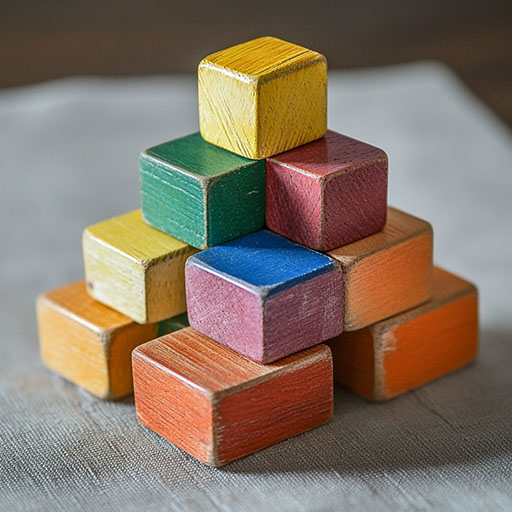
Fortunately, these things don’t take very long to learn, and you can easily find a page explaining the basic rules of poker to get you started.
If you are new to poker and looking to learn in 2026, I recommend spending time on the basics and playing a few hands on a free-to-play app to get a feel for the game’s flow.
You don’t need to know what hands to play, and you can play any way you want to, just as long as you learn what hand beats what and when it’s your turn to act.
Mathematics of Poker
Once you have the basics down, it’s time to start learning some basic mathematics that will be the basis of any strategy you learn in the future.
This stage includes:
- Counting outs
- Calculating odds
- Calculating pot odds
- Understanding implied odds
- Understanding bet sizes
- Understanding stack-to-pot ratio
- Basics of ICM (for tournament players)
These basic mathematical concepts are all fundamental to becoming a reasonably successful poker player in the future.

Without these things, you will not be able to understand the more advanced concepts that will be discussed in any of the learning materials you may find in the future.
Fortunately, we offer full guides to all these basic poker concepts, and you can look to learn about each of them without having to buy any coaching or get help from anyone.
Invest some time in reading and understanding the guides to outs, odds, bet sizing, and other basic concepts, and you will be on your way to becoming a fully-fledged poker player.
Introduction to Poker Strategy
Once you have gotten the basic mathematical concepts of poker down, you can start thinking about actual poker strategy.
The basics of poker strategy you will need to learn include opening, calling, and 3-betting ranges for different positions at the table, as well as the importance of positional play in general.
In this stage, you will learn which hands you should be playing from different positions and how exactly to play them.
Depending on whether you choose to focus on mastering tournaments or cash game poker, you will notice that these can be quite a bit different, as stack sizes differ massively in these two game types.
Furthermore, you will need to learn about basic post-flop plays such as continuation bets, donk bets, check-raises, and other plays you can make in different parts of a poker hand.
Basic poker strategy can be learned for free with some simple strategy guides, and using these will be enough to give you a full range of motion at the tables.
Once you master this part, you will be able to play poker in any game and not embarrass yourself, as your fundamental principles will be sound.
At this point, the best thing to do is get some playing time in and experience the game for yourself. You will start to notice which areas of the game you understand well and what stumps you. Being honest with yourself will serve you well in future learning endeavors.
Exploring the Poker Tools
Poker players learning the game in 2026 are in luck, as they have tools at their disposal that did not exist some 10 or 20 years ago, when so many of today’s poker legends were getting into the game.
These days, you can find quite a few programs that are either completely free or quite affordable that will let you learn about poker from a mathematical standpoint.
These tools can be invaluable, but learning to use them effectively can take significant time and effort, which you should invest.
Once you have the basics of poker strategy down, advancing in the game can be done in two ways: either by learning yourself with poker tools or by buying poker coaching from experienced coaches.
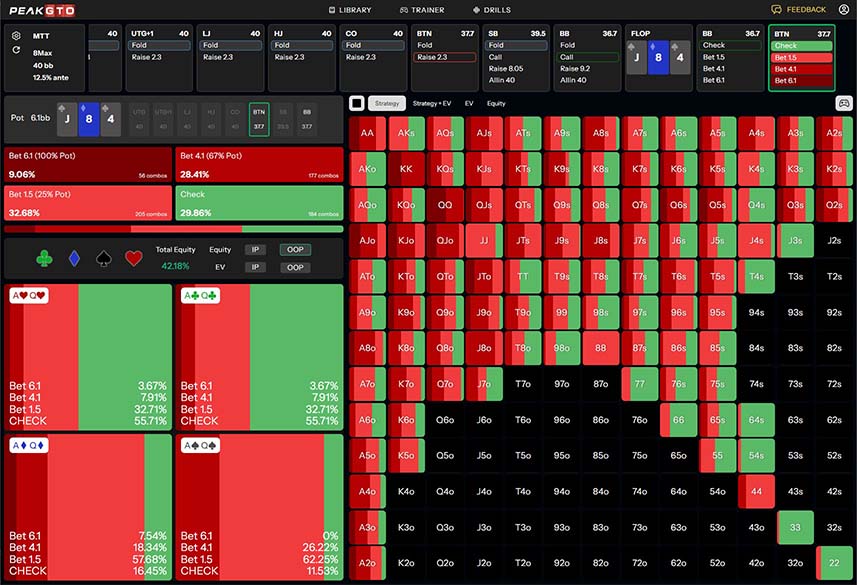
However, even if you do plan on paying for poker coaching, you should be able to use all of these tools, as they are also the tools that will be used by the coaches trying to teach you.
I can recommend some of the following tools as a good start:
- PokerTracker
- Equilab
- Flopzilla
- ICMizer (for tournament player)
- PokerSnowie
- PIO Solver
- PeakGTO
Each of these tools will help you learn poker in a different way, and you should probably not start with all of them.
Ideally, however, you will want to eventually have a working knowledge of each of these tools, as they offer the best way to learn poker on your own and get solutions for specific situations that you find troublesome.
Value of Poker Coaching Courses
There is no shortage of paid poker coaching content out there these days, and the truth is that this is some of the best content you can get to learn poker in 2026.
Free content will only get you so far, but if you are already a decent poker player, you will need something more advanced to take you to a new level.
If you are looking to beat a certain game type, you will need to get coaching from people who have a history of beating those games, and the world’s best poker coaching comes from exactly such backgrounds.
Good poker coaching courses may not come cheaply, but they offer the kind of insider information that you have been looking for and that you will not find in any free articles or other places.
What’s even more, good poker coaches explain things in a concise way that you can actually wrap your head around, instead of beating around the bush and leaving you confused.
If you want to truly master the game of poker in 2026, paying for a poker training subscription or a course will probably be a must at some point, but only once you are ready for that advanced strategy.
If you plan to keep playing casually, you can get around this part and try learning poker in other ways, with watching the pros ply their trade on TV being one of the best alternatives to paid poker coaching.
Mastering the Mental Game
Whether you are just learning about poker hand rankings or have been playing poker for years and have a lot of the strategy down, you will need to master the mental game if you want to have any chance of success.
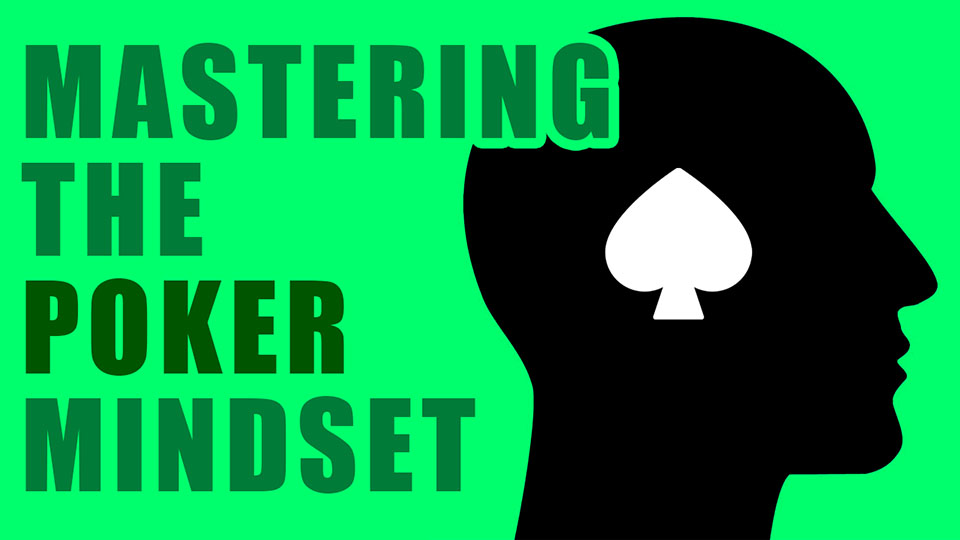
While poker is a game of math, there are many mental barriers that can prevent you from having success in it.
Whether you are struggling with bankroll management, tilt, getting bored, frustrated, or thinking you are unlucky, you will want to plug these leaks before you take poker too seriously.
There are a lot of tools out there to help you with master your poker mindset, but it will take willpower and practice to actually make the advice you get count for something.
Mental game is the area in which most players fail the most often, so don’t be discouraged if you go broke tilting or make mental game mistakes that cost you money at the tables.
As long as you learn from your mistakes and improve yourself for future sessions, your results will keep getting better, and you will become a better poker player over time.
Learning Never Stops
An essential piece of advice I would give to any aspiring poker player is to never stop learning and studying poker regularly.
Whether you are mostly focused on tournament strategy, cash game strategy, or mixed games, we live in a time when countless poker learning resources are available, and taking advantage of all of them will only make you a better player by the day. On the other hand, if you neglect to study poker, you will allow other players to get better while you stagnate, which will cost you in the long run.
How far you want to take your poker learning depends on your goals, but a key takeaway is that you can never spend too much time studying and improving.
